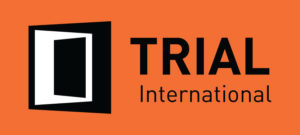Facts
The Gambia was under the control of President Jammeh from 1994 to 2016. For more than two decades, all opposition was repressed. Torture, extrajudicial executions and enforced disappearances were widespread.
After Jammeh’s re-election in September 2006, Ousman Sonko was appointed minister of the interior. He held this position until September 2016, when he was dismissed from office and left The Gambia.
In December 2016, Jammeh refused to recognize the result of the presidential election which saw the victory of the opposition candidate Adama Barrow. The Economic Community of West African States launched a military intervention in The Gambia to enforce the election results, which led to Jammeh stepping down as president in January 2017 and going to exile in Equatorial Guinea.
In 2018, a Truth, Reconciliation and Reparations Commission (TRRC) was set up to investigate the crimes committed during the Jammeh regime. In its final report published late 2021, the TRRC recommended the prosecution of Sonko for the role he allegedly played in killings that took place in 2000, 2005 (West African migrants), 2006 and 2012 and acts of torture committed in 2006 and 2016. The TRRC also recommended his prosecution for acts of sexual violence allegedly committed in 2005 and 2015.
The Gambian government published an implementation plan of the TRRC recommendations in May 2023. One year later, the Gambian National Assembly passed the Special Prosecutor’s Office Bill and the Special Accountability Mechanism Bill to prosecute perpetrators of the Jammeh regime.
In parallel, the creation of a hybrid court to try the most senior members of the regime, including Yahya Jammeh, has been under discussion in the ECOWAS. On 15 December 2024, the ECOWAS approved the establishment of the Special Tribunal for The Gambia.
Procedure
Alerted of Sonko’s presence on Swiss territory, TRIAL International filed a criminal complaint before the prosecuting authorities in Bern on 25 January 2017. The former Gambian minister was arrested the following day at the immigration center of Lyss (canton of Bern), where he had applied for asylum.
Between 2017 and 2022, the Office of the Attorney General (OAG) heard Sonko on multiple occasions. Ten Gambian victims filed individual complaints. All of them, along with dozens of witnesses, including the United Nations special rapporteur on torture, were heard by the OAG. The Swiss authorities travelled on different occasions to The Gambia during their investigation to gather evidence in the framework of mutual judicial cooperation, including to hear witnesses.
In April 2023, the OAG indicted Sonko for crimes against humanity committed in The Gambia and referred the case to the Federal Criminal Court (FCC).
Sonko’s trial took place in two phases in early 2024. From 8 to 26 January, all parties were heard on the facts. From 4 to 7 March 2024, the OAG, the plaintiffs’ lawyers and the defense then presented their closing arguments. Ousman Sonko then made a final statement to the court.
On 15 May 2024, the FCC delivered its verdict, sentencing Ousman Sonko to 20 years in prison for his involvement in numerous crimes against humanity committed between 2000 and 2016. Specifically, the court found him guilty of the murder of a perceived political opponent in 2000, torture and unlawful detention in connection with a coup plot in March 2006, the murder of a politician in 2011, and deprivation of liberty and torture – including murder – of peaceful demonstrators in 2016. The FCC also ordered Sonko to pay compensation to the plaintiffs in accordance with the damage suffered.
However, the FCC dropped all charges of sexual offences. Without ruling that they did not take place, the court held that these acts were isolated from the context of the attacks against the civilian population and therefore could not constitute crimes against humanity. The court also ruled that electric shocks to the genitals should be considered torture rather than sexual violence.
Declarations of appeal by the parties will follow the notification of the written judgement.
